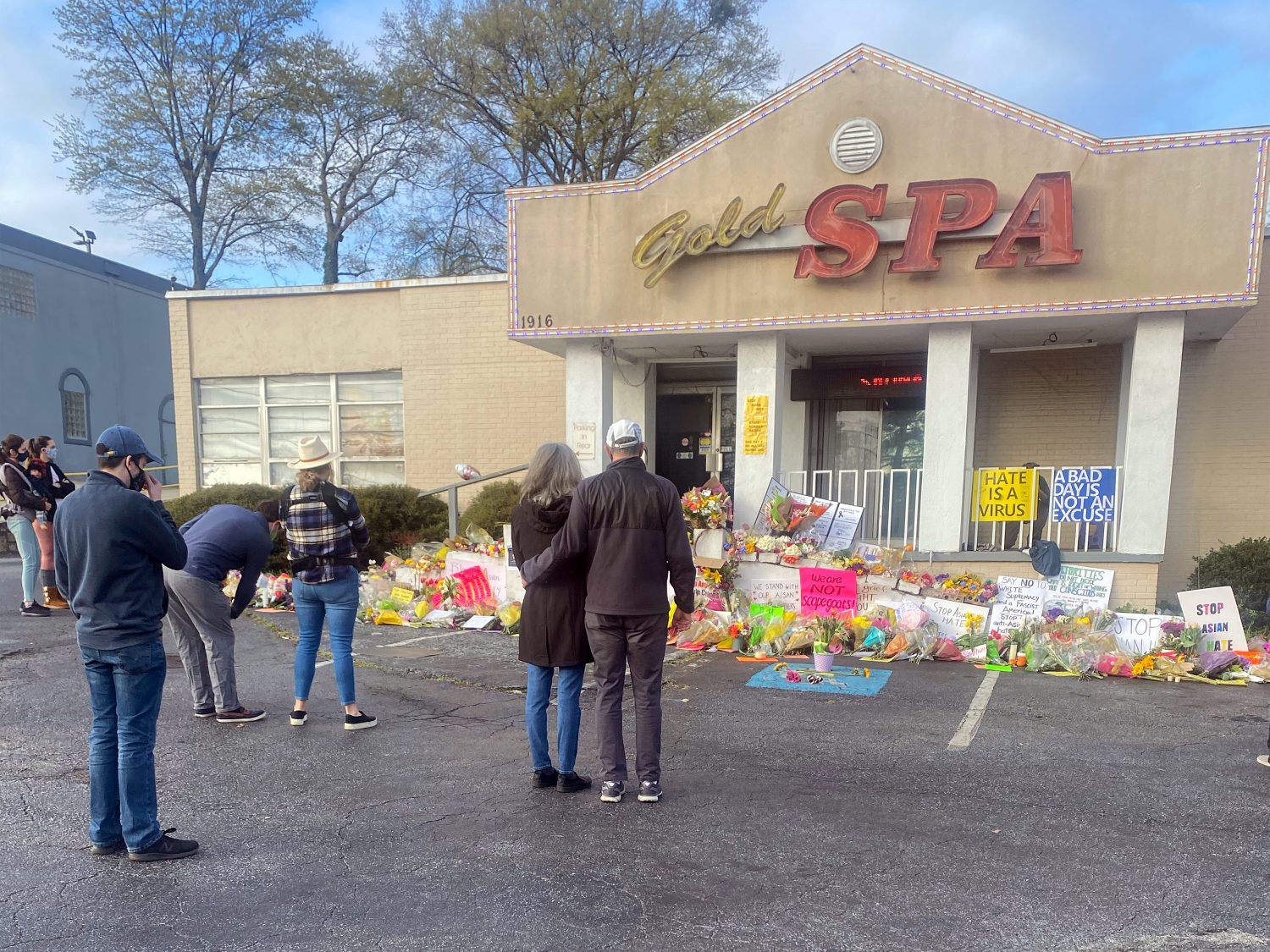My heart is heavy as I think about the eight people killed at three Atlanta-area massage parlours last week, including six Asian women. As I sit in my grief at the loss of Asian mothers, aunties and grandmothers who look like mine, I’m enraged, yet unsurprised, that working-class Asian women were the targets of violence.
I hold the pain of the all-too-familiar exoticization and objectification many of us have experienced as Asian women. I also hold the shame imposed by evangelical Christian purity culture. The suspect, who attended a Baptist church, cited “sex addiction” and deemed these women temptations to eliminate.
You may unsubscribe from any of our newsletters at any time.
These Asian women embodied his misogyny. They were an exotic “other” to be fetishized, hypersexualized and disposed of. Their stories, their lives and the people who loved them didn’t matter to him.
This violence highlights our need to hold the church accountable for purity culture teachings that perpetuate white supremacy, misogyny and anti-sex work attitudes.
With the rise of COVID-related anti-Asian hate crimes in Canada and the U.S., women, seniors, low-income individuals and those with limited English fluency are particularly vulnerable. Church leaders have been quick to decry the racist shootings in churches and online.
But how many statements take an intersectional view to address the harmful teachings of purity culture?
More on Broadview:
- Atlanta suspect blamed women for ‘tempting’ him. Purity culture does the same.
- White Jesus is grounded in colonialism. Black Jesus is rooted in liberation.
- As a married, queer, Catholic, I don’t know how much more hurt I can take
Purity culture became popular in the 1990s to promote sexual abstinence before heterosexual marriage, with the burden placed on white women to uphold that purity and not tempt men to sin. Women of colour, however, do not get to be seen as pure.
The church has a long history of colonial missionary work that exoticizes women of colour and deems them impure. Racialized women are also hypersexualized at younger ages than white women, which makes “sexual purity” nearly impossible for women of colour.
The church places shame on anything sex-related or perceived as sex-related outside of straight marriage – including sex before marriage, masturbation and watching pornography – and on anyone who falls outside of this narrow definition.
These teachings marginalize queer and trans people, including myself, who have tried to “pray away the gay.” As a result, LGBTQ+ people experience higher rates of mental health issues, substance abuse, homelessness and suicide. Purity culture also enables society to blame survivors of sexual assault with women taking the brunt of this shame and violence.
Furthermore, there is much stigma towards sex workers and white evangelical women lead the charge against them. For anti-trafficking groups, sex workers are seen as victims in need of rescuing. They conflate sex work with human trafficking, which causes more harm and violence to sex workers, especially for migrant sex workers.
There is a long history of exoticization, hypersexualization and stereotypes of Asian women from the 1875 Page Act to military deployments to the media. Although we don’t know if any of these women were sex workers, it matters that they were Asian women at massage parlours and in the suspect’s eyes, temptations for him to eliminate. Moreover, Asian women who work at massage parlours are vulnerable to discrimination, over-policing, criminalization and precarious immigration status.
It is not enough for churches to decry the anti-Asian racism and sexism here as many Christian communities continue to uphold white supremacy and patriarchal teachings. They need to interrogate the impacts of purity culture and acknowledge the violence this has caused many communities. Without that acknowledgment, this doctrine has and will continue to kill people.
***
Jenna Tenn-Yuk is a writer and speaker in Toronto.













